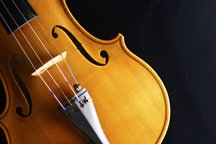Celebrity
 one very important aspect of each of their personal lives: how they ordered a drink from a bartender. Aside from that, there was never anything too noteworthy about the experience. There were a few exceptions, of course, anecdotes I could share on first dates, that kind of thing. But there was an underlying insult to all of it: far fewer were the celebrities I pushed cocktails towards than the ordinary folk who asked, “Do you ever see celebrities in here?”
one very important aspect of each of their personal lives: how they ordered a drink from a bartender. Aside from that, there was never anything too noteworthy about the experience. There were a few exceptions, of course, anecdotes I could share on first dates, that kind of thing. But there was an underlying insult to all of it: far fewer were the celebrities I pushed cocktails towards than the ordinary folk who asked, “Do you ever see celebrities in here?”No Escape
I hated that question. For one thing, the dynamic between the bartender and the drinker carries the false assumption that there is a conspiratorial relationship occurring, a romanticized notion that for the time it takes to quaff a beer, “we’re in this thing together.” Naturally, such a romance is always on the drinker’s terms, and worse, in his mind, so whatever his views are in that moment, it is assumed that the bartender shares them. (Bartenders must learn how to protect themselves from this.) I can only assume that during those brief moments, those drinkers thought I was as giddy as they were about the celebrities I had served. The worst part of it, however, was that my job became an unrelenting reminder that we cannot escape our cultural obsession with celebrity.
Pondering this led me to an article online. Dr. Kevin Howley, professor at DePau
 w University says that the obsession with celebrity is evidence that as a society we suffer from a crisis of identity: "A profound disruption to traditional ways of life." Joe Polisi, president of Juilliard, says that the bombardment of pop culture along with the decline of arts education is hurting the nation: "The vacuum that was created has been filled by pop culture."
w University says that the obsession with celebrity is evidence that as a society we suffer from a crisis of identity: "A profound disruption to traditional ways of life." Joe Polisi, president of Juilliard, says that the bombardment of pop culture along with the decline of arts education is hurting the nation: "The vacuum that was created has been filled by pop culture."
Heard of these two guys? Not likely.
From Hollywood
In the same article, Robert Redford says that he would rather see more balance: “It draws our society to a lower place... Important issues are getting lost in the froth." And Ron Howard adds that celebrity culture "has replaced the role that mythological characters were given...celebrities provide these little parables."
Now don’t Mr. Howard’s and Mr. Redford’s statements pack a lot more punch? Simply in seeing their names? Yet don't you have to admit that it seems there might be more meat to what Mr. Polisi and Dr. Howley have to offer? In large part, we are drawn to the famous pair out of our primitive attraction to power. A university professor and president of Julliard may hold quite a bit of cache, but Hollywood icons have real credibility. Culturally speaking, of course.
Celebrities from all walks of fame wield undeniable power for their achievements in the world of  fame, which brings us to a chicken-or-the-egg paradox. The fact that they are highly visible, if they are succeeding in their celebrity, makes their power all the more potent. The more potent this power, the more famous they seem to be. And this is intoxicating, perhaps made even more so by this mysterious Catch-22.
fame, which brings us to a chicken-or-the-egg paradox. The fact that they are highly visible, if they are succeeding in their celebrity, makes their power all the more potent. The more potent this power, the more famous they seem to be. And this is intoxicating, perhaps made even more so by this mysterious Catch-22.
No One Knows Why
Even I, who make the supercilious claim that I am above such groveling, must admit that I did some rather enthusiastic clicking-through to news on Michael Jackson’s court case. I can't explain it. And I'd rather that it went no further than here.
The most amazing element of all of this is that, sure, everyone - from doctors of sociology to celebrities themselves - can reflect upon the ramifications of our obsessing over celebrities, yet no one can address the reason the culture believes they are deserving of such devotion. To pull from Christopher Lasch, again,
The only important attribute of celebrity is that it is celebrated; no one can say why.
There is much more to be said on this subject. And certainly it will be said. Perhaps over a manhattan.

0 Comments:
Post a Comment
<< Home